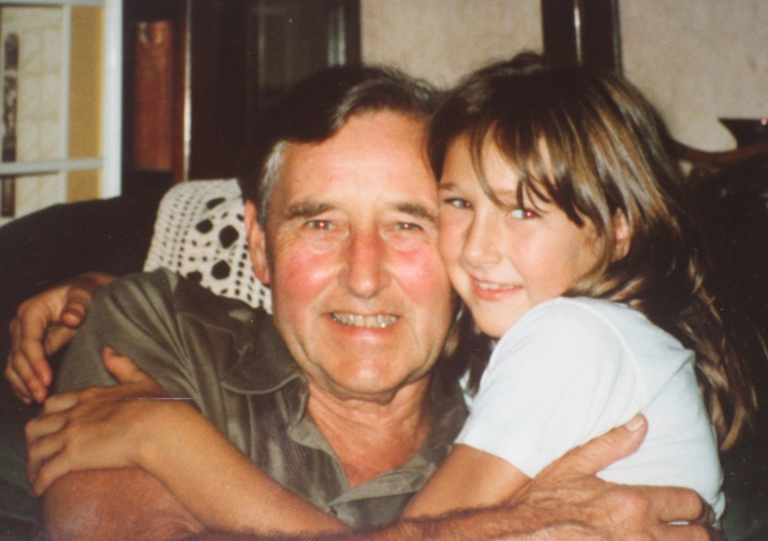Alzheimer’s strips millions of people of their memory, personality and dignity. At Manchester, we’re committed to fighting this debilitating disease.
Every three minutes, someone in the UK is diagnosed with dementia Click To Tweet Repurposing anti-inflammatory drugs may be the key to fighting Alzheimer’s Click To Tweet Alzheimer's is a disease like any other and it can be defeated. Here's what we're doing at Manchester Click To TweetAlzheimer’s disease is the most common form of dementia, affecting 62% of the 850,000 people living with dementia in the UK right now.
That number is only set to rise, to 1 million by 2025 and 2 million by 2051. This year alone, 225,000 people will develop dementia; that’s one every three minutes.
Alzheimer’s is a neurological disease which affects many brain functions, most notably memory. Those affected will start becoming confused and disorientated, even in familiar places. They will have difficulty making decisions, speaking, or even performing basic tasks unassisted.
These symptoms will only get worse over time, affecting more and more brain functions increasingly severely, until it ultimately kills the person with the disease. Dementia is now the leading cause of death in the UK.
There is no cure. The average life span is around eight to ten years, and the only available medications can just delay symptoms. There have been no new medicines for Alzheimer’s in the last 15 years.
Heledd’s story
Few people know the disease as intimately as Dr Heledd Jarosz-Griffiths, whose father lived with the disease for almost seven years.
“I know about dementia and what it means. I lived under its control for almost seven years after my dad was diagnosed with Alzheimer’s disease. Dementia stripped him of his memory, personality and his dignity, leaving a shell of the amazing man he used to be.”
When her father died, Heledd was in the first year of her PhD – studying dementia. Her father’s death made her think twice about continuing in this area of research.
“Did I really want to dissect and analyse a disease that destroyed someone I loved so much? I was so angry with dementia, it made me feel weak and helpless. I just wanted to bury my head in the sand.”
Heledd decided to face her fears and continue with her study. She is now working as a Postdoctoral Fellow at the University, in a world-leading dementia research team.
“I try to use my experience in a positive way. Losing my dad to dementia motivates me to do my utmost to find better treatments so others don’t have to go through what I did.”

Heledd’s research is crucial to fighting this disease, but dementia researchers like her are rare. There are five times as many researchers working on cancer as there are on dementia.
Repurposing drugs to fight Alzheimer’s
So, what are we doing here in Manchester to tackle this devastating disease?
We have teams working on many different approaches to fighting Alzheimer’s, but one of the most promising new discoveries was made by Dr David Brough’s lab here at Manchester.
While it is still not known exactly what causes Alzheimer’s, evidence increasingly suggests that inflammation in the brain can make the disease worse.
One particular inflammatory protein complex, called the inflammasome, has been shown to have a crucial role in Alzheimer’s development.
So last year, a team led by Dr Brough, tested existing Non-Steroidal Anti Inflammatory Drugs (NSAIDs) to see if they had any impact in fighting the brain inflammation found in mice with Alzheimer’s.
They found one drug, mefenamic acid, which is currently used to treat period pain, completely reversed memory loss and brain inflammation in mice.
Repurposing an already available drug to treat a different disease has many advantages over new drug discovery.
“Because this drug is already available and the toxicity and pharmacokinetics of the drug is known, the time for it to reach patients should, in theory, be shorter than if we were developing completely new drugs.” Dr Brough said.
Reversing the inflammation in mice is just the first step, however. A lot more work is required to test if the same results can be replicated in humans.
The team are currently planning phase II trials to continue this research.
The University is a world leader in Alzheimer’s research, and this project by Dr Brough’s team is just one of many avenues researchers here are exploring to fight the disease.
Winning the fight
There is a widespread belief that Alzheimer’s is just a normal part of getting old but this is entirely untrue. Alzheimer’s is a disease just like any other, and it can be defeated. At Manchester, we’re committed to doing just that.
Currently, however, Alzheimer’s and dementia research is severely underfunded. The annual cost to the UK economy for every person living with dementia is £30,000, and yet for every person with dementia, only £90 a year is spent on research.
The chronic underfunding of Alzheimer’s research means that charitable donations are crucial to continuing this fight.
With your continued support, we can lead the way in fighting Alzheimer’s and other forms of dementia.

